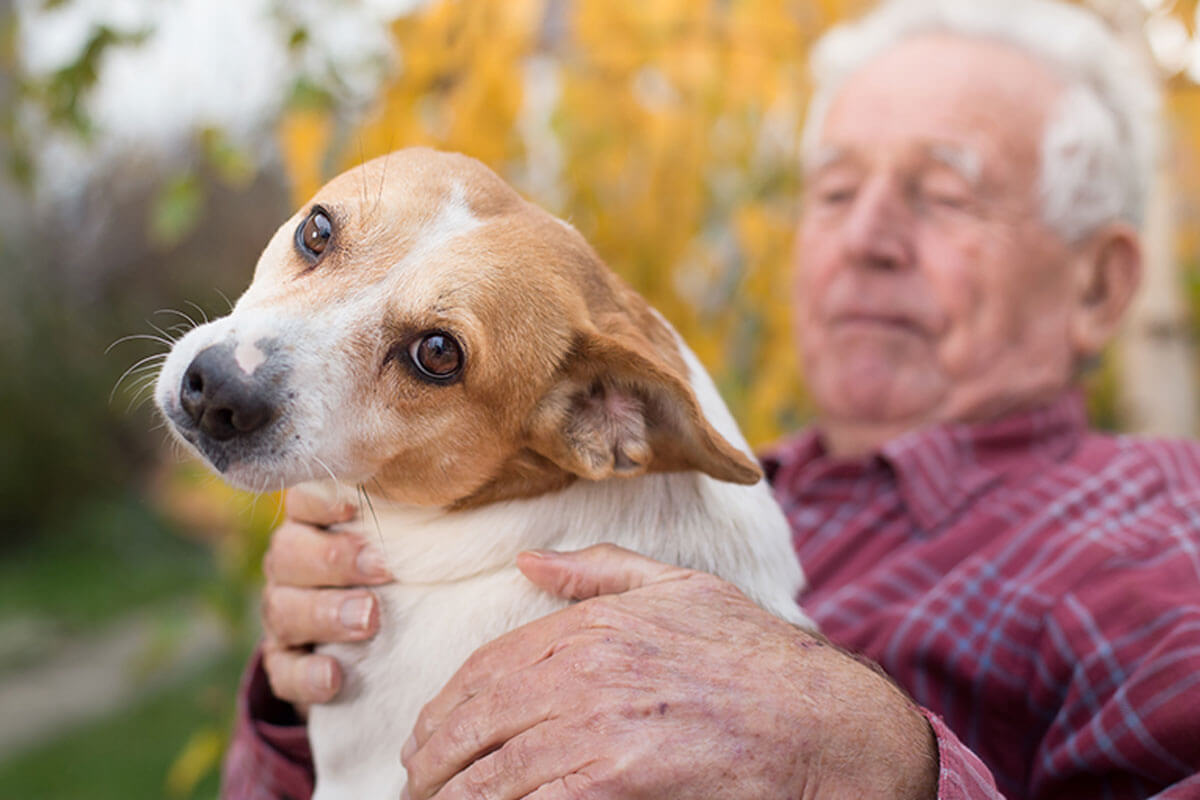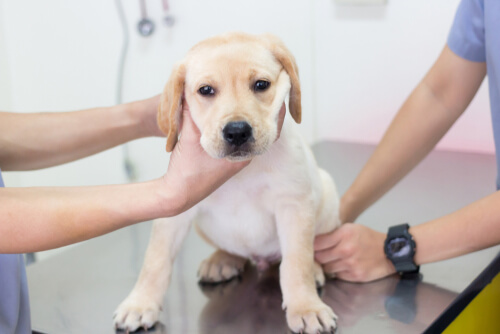Adoption and Responsible Dog Ownership


Written and verified by the biologist Cesar Paul Gonzalez Gonzalez
When deciding to bring a dog home, owners acquire a series of responsibilities and obligations that must be fulfilled in order to take care of the animal’s health. Although most of these requirements aren’t mandatory by law in some countries, it’s important to take them into account in order to achieve responsible dog ownership.
It’s essential to remember that pets depend almost entirely on their owners. Therefore, any neglect in their daily care can cause health problems and even put their lives at risk. This is the main reason why we want people to be aware of what adoption entails. Continue reading this space and find out what responsible dog ownership consists of.
What does responsible dog ownership consist of?
In a nutshell, responsible dog ownership consists of ensuring the welfare of the pet before and after it arrives at your house. This means that the decision should be considered in advance in order to assess the impact it will have on the family’s daily life.
Owning dogs as pets brings with it commitments and responsibilities that owners cannot ignore. For this reason, one should be aware of their needs and requirements before making the decision to adopt one. Some things to consider are as follows:
- Analyze the cost that a dog generates in the short and long term: it’s good to evaluate the expenses that the family will have in essential things such as food, toys, training, and vet costs.
- Analyze the available time that can be offered to the pet: it’s crucial to define if there’s enough time to offer to the animal to satisfy the dog’s basic needs.
- Consider several different breeds: look for a dog that fits your lifestyle. If your life isn’t very active, don’t choose a dog that needs too much exercise.
- Identify if your home is suitable and safe to shelter a pet: the area a dog lives in must be large and safe enough for it to develop fully. Not all breeds are suitable for apartments, so consider their needs carefully.
- Prioritize adoption over purchase: although this isn’t mandatory, it’s always advisable to offer a second chance to dogs in animal shelters.

What happens if I’m not responsible in looking after my dog?
The irresponsibility or carelessness of owners can lead to accidents, injuries, or diseases that put the lives of pets at risk. These types of actions are irrational and different countries classify them as animal abuse, and can impose fines or even jail.
For a long time, the adoption and responsible ownership of a dog was considered a moral norm that didn’t create any consequences for the family. However, thanks to the efforts of several animal protection groups and society in general, special laws have been drafted to protect pets from irresponsible owners.
It should be noted that the adoption of this type of laws focused on animal welfare isn’t yet accepted worldwide. Also, the severity of the penalties for non-compliance with responsible dog ownership varies according to the legislation in force.
Additional regulations for responsible dog ownership
As mentioned above, the legal requirements for responsible dog ownership and adoption vary from country to country and community to community. However, the regulations agree on some of the following points.
1. Registration of pets in a national or international registry
Several countries have opted to require the registration of all pets in order to have more precise control over domestic animals. In addition, certain legislations require that an identification microchip be placed in each pet.
2. Mandatory use of leashes when going for a walk
Some legislations establish that it’s mandatory to use a leash while transporting the dog (walking) on public roads. This is to avoid accidents or unwanted confrontations. Of course, the above doesn’t apply to dog parks or areas designated by the state for canine recreation.
3. Special legislation are for potentially dangerous dogs
Although it’s an inadequate term, currently, different legislations consider that certain breeds of dogs are dangerous “by nature”. The owners of these types of dogs are asked to comply with additional requirements such as the accreditation of training courses, the use of special attachments (metal leashes and muzzles), and the mandatory registration of the pet.
The breeds that qualify as Potentially Dangerous Dogs vary from regulation to regulation. However, all breeds that derive from fighting dogs, that have a muscular appearance, or have a bulky body are usually considered under this heading.
4. Mutilations for aesthetic purposes are forbidden
Different animal welfare laws have established that any mutilation for aesthetic purposes on the pet is considered animal abuse and is forbidden. This includes ear cropping, tail docking, nail removal and vocal cord cutting.

Your pet depends on you
It’s crucial to always keep in mind that when you adopt a dog you acquire the responsibility to watch over and care for it until its death. Remember that it’s a living being that depends entirely on you, so don’t expose it to unnecessary risks or make it suffer. Be assured that if you offer them a good quality of life, they will reciprocate with lots of love and unforgettable experiences.
When deciding to bring a dog home, owners acquire a series of responsibilities and obligations that must be fulfilled in order to take care of the animal’s health. Although most of these requirements aren’t mandatory by law in some countries, it’s important to take them into account in order to achieve responsible dog ownership.
It’s essential to remember that pets depend almost entirely on their owners. Therefore, any neglect in their daily care can cause health problems and even put their lives at risk. This is the main reason why we want people to be aware of what adoption entails. Continue reading this space and find out what responsible dog ownership consists of.
What does responsible dog ownership consist of?
In a nutshell, responsible dog ownership consists of ensuring the welfare of the pet before and after it arrives at your house. This means that the decision should be considered in advance in order to assess the impact it will have on the family’s daily life.
Owning dogs as pets brings with it commitments and responsibilities that owners cannot ignore. For this reason, one should be aware of their needs and requirements before making the decision to adopt one. Some things to consider are as follows:
- Analyze the cost that a dog generates in the short and long term: it’s good to evaluate the expenses that the family will have in essential things such as food, toys, training, and vet costs.
- Analyze the available time that can be offered to the pet: it’s crucial to define if there’s enough time to offer to the animal to satisfy the dog’s basic needs.
- Consider several different breeds: look for a dog that fits your lifestyle. If your life isn’t very active, don’t choose a dog that needs too much exercise.
- Identify if your home is suitable and safe to shelter a pet: the area a dog lives in must be large and safe enough for it to develop fully. Not all breeds are suitable for apartments, so consider their needs carefully.
- Prioritize adoption over purchase: although this isn’t mandatory, it’s always advisable to offer a second chance to dogs in animal shelters.

What happens if I’m not responsible in looking after my dog?
The irresponsibility or carelessness of owners can lead to accidents, injuries, or diseases that put the lives of pets at risk. These types of actions are irrational and different countries classify them as animal abuse, and can impose fines or even jail.
For a long time, the adoption and responsible ownership of a dog was considered a moral norm that didn’t create any consequences for the family. However, thanks to the efforts of several animal protection groups and society in general, special laws have been drafted to protect pets from irresponsible owners.
It should be noted that the adoption of this type of laws focused on animal welfare isn’t yet accepted worldwide. Also, the severity of the penalties for non-compliance with responsible dog ownership varies according to the legislation in force.
Additional regulations for responsible dog ownership
As mentioned above, the legal requirements for responsible dog ownership and adoption vary from country to country and community to community. However, the regulations agree on some of the following points.
1. Registration of pets in a national or international registry
Several countries have opted to require the registration of all pets in order to have more precise control over domestic animals. In addition, certain legislations require that an identification microchip be placed in each pet.
2. Mandatory use of leashes when going for a walk
Some legislations establish that it’s mandatory to use a leash while transporting the dog (walking) on public roads. This is to avoid accidents or unwanted confrontations. Of course, the above doesn’t apply to dog parks or areas designated by the state for canine recreation.
3. Special legislation are for potentially dangerous dogs
Although it’s an inadequate term, currently, different legislations consider that certain breeds of dogs are dangerous “by nature”. The owners of these types of dogs are asked to comply with additional requirements such as the accreditation of training courses, the use of special attachments (metal leashes and muzzles), and the mandatory registration of the pet.
The breeds that qualify as Potentially Dangerous Dogs vary from regulation to regulation. However, all breeds that derive from fighting dogs, that have a muscular appearance, or have a bulky body are usually considered under this heading.
4. Mutilations for aesthetic purposes are forbidden
Different animal welfare laws have established that any mutilation for aesthetic purposes on the pet is considered animal abuse and is forbidden. This includes ear cropping, tail docking, nail removal and vocal cord cutting.

Your pet depends on you
It’s crucial to always keep in mind that when you adopt a dog you acquire the responsibility to watch over and care for it until its death. Remember that it’s a living being that depends entirely on you, so don’t expose it to unnecessary risks or make it suffer. Be assured that if you offer them a good quality of life, they will reciprocate with lots of love and unforgettable experiences.
All cited sources were thoroughly reviewed by our team to ensure their quality, reliability, currency, and validity. The bibliography of this article was considered reliable and of academic or scientific accuracy.
- Soberanis-Ramos, O., Arvizu-Tovar, L. O., & Pérez-Rivero, J. J. (2018). Tenencia responsable de perros en la Ciudad de México. salud pública de méxico, 60(2), 128-129. https://www.scielo.org.mx/scielo.php?script=sci_arttext&pid=S0036-36342018000200014
- Procuraduría Ambiental y del Ordenamiento Territorial de la Ciudad de México. (2022). Adopción Responsable. Recuperado el 5 de abril de 2023, disponible en: https://paot.org.mx/micrositios/ADOPTA_3/index_1.html
- Senado de la República LXV Legislatura. (2019). Gaceta Parlamentaria: miércoles 14 de agosto de 2019 / LXIV/1SPR-31-2478/98385. Recuperado el 5 de abril de 2023, disponible en: https://www.senado.gob.mx/65/gaceta_comision_permanente/documento/98385#:~:text=El%20maltrato%20animal%20es%20definido,de%20alg%C3%BAn%20tipo%20de%20da%C3%B1o.
- Programa de Tenencia Responsable de Animales de Compañía (PTRAC). (2021). Registro Nacional de Tenencia Responsable. Recuperado el 5 de abril de 2023, disponible en: https://registratumascota.cl/inicio.xhtml
- Comunidad de Madrid. (sf). Mascotas: bien cuidadas y con garantías. Recuperado el 5 de abril de 2023, disponible en: https://www.comunidad.madrid/servicios/consumo/mascotas-bien-cuidadas-garantias
- Consejería de la Presidencia, Interior, Diálogo Social y Simplificación Administrativa. (sf). Perros potencialmente peligrosos (ppp). Recuperado el 5 de abril de 2023, disponible en: https://www.juntadeandalucia.es/organismos/presidenciainteriordialogosocialysimplificacionadministrativa/areas/interior/animales-compania/perros-potencialmente-peligrosos.html
This text is provided for informational purposes only and does not replace consultation with a professional. If in doubt, consult your specialist.








